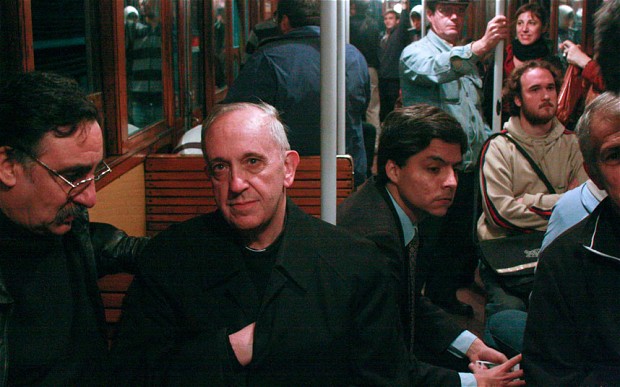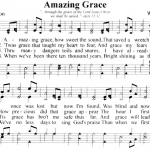In 2014, I’m reading and blogging through Pope Francis/Cardinal Bergoglio’s Open Mind, Faithful Heart: Reflections on Following Jesus. Every Monday, I’ll be writing about the next meditation in the book, so you’re welcome to peruse them all and/or read along.

I got stuck for a while on this chapter. Partially because I was up north for a debate reunion (and suffering the side-effects of keeping undergraduate hours) and partially because Open Mind, Faithful Heart has turned out to be a bit more focused on the needs of priests than I expected.
But, as I was reminded when two engaged friends of mine were joking about being the prior and prioress of the abbey of their family, all believers share in Christ’s office as priest, prophet, and king. So I went through the chapter again, trying to sort out what still spoke to me in my role as a laywoman, and why. Looking at one excerpt:
Our mission then–the mission that frightens us and makes us offer excuses like the ones we hear from the lips of the reluctant prophets in the scriptures–is to evangelize, to shepherd the faithful people of God. And that mission establishes us in our vocation. In calling us to that mission, Jesus gives us solidarity in the depths of our hearts: he establishes us as pastors and makes that our identity. In our visits to the sick, in our administration of the sacraments, in our teaching of the catechism, and in all the rest of our priestly activity, we are collaborating with Christ in establishing Christian hearts. At the same time, and by the same means, that is, by the work we do, the Lord is establishing and rooting our hearts in his own.
Nearly all of these (especially the offering of excuses) are things I can and should do. I can evangelize or visit the sick or teach the catechism. The notable exception is the administration of the sacraments.
I find it interesting that the then-Cardinal doesn’t set the sacraments at the end of the list. It would be natural for a list of priestly activities to build to the most important or most glorious, but, instead, the sacraments are tucked into the middle of the sequence.
Sacraments aren’t the only times that priests scatter graces, but they are the only times we can be sure that we’ve come to the right place to seek out God. That’s why sacraments are defined as the outward sign of an inward grace — the ritual and formality reassures us and gives us something to rely on. Christ can come to us anywhere, but sacraments give us somewhere to go looking.
But priests don’t stop asking for and passing along grace when they step down from the altar, and these quiet graces of good works and kindness are available to everyone. I live in Washington D.C. which often feels rich with priests to me. So, when a friend comes to me with a complex problem, theological or otherwise, I’m prone to ask them if they’d like me to throw a priest or a friar at them. After all, their job is being helpful.
I could stand to do more thinking about when I should throw me at the problems, or what problems never even rise to my attention, since I don’t make myself easy to approach or don’t go out into the world enough in order to spot them. We’re all called to be channels of God’s grace, although few of us have clearly delineated spiritual responsibilities of priests.
This is the seventh day of our Novena to St. Dymphna. You can find the prayers here and a little background on why we’re praying it here.












